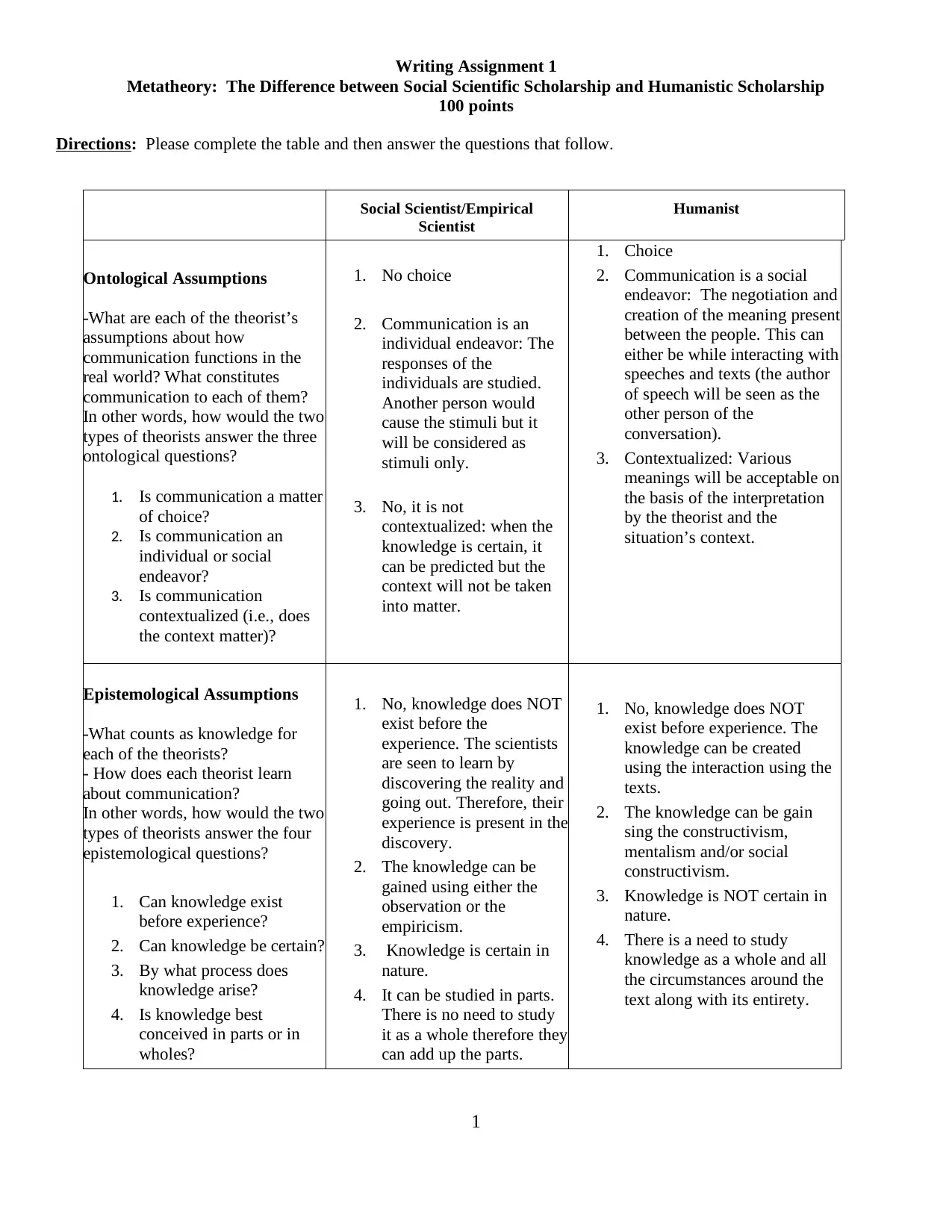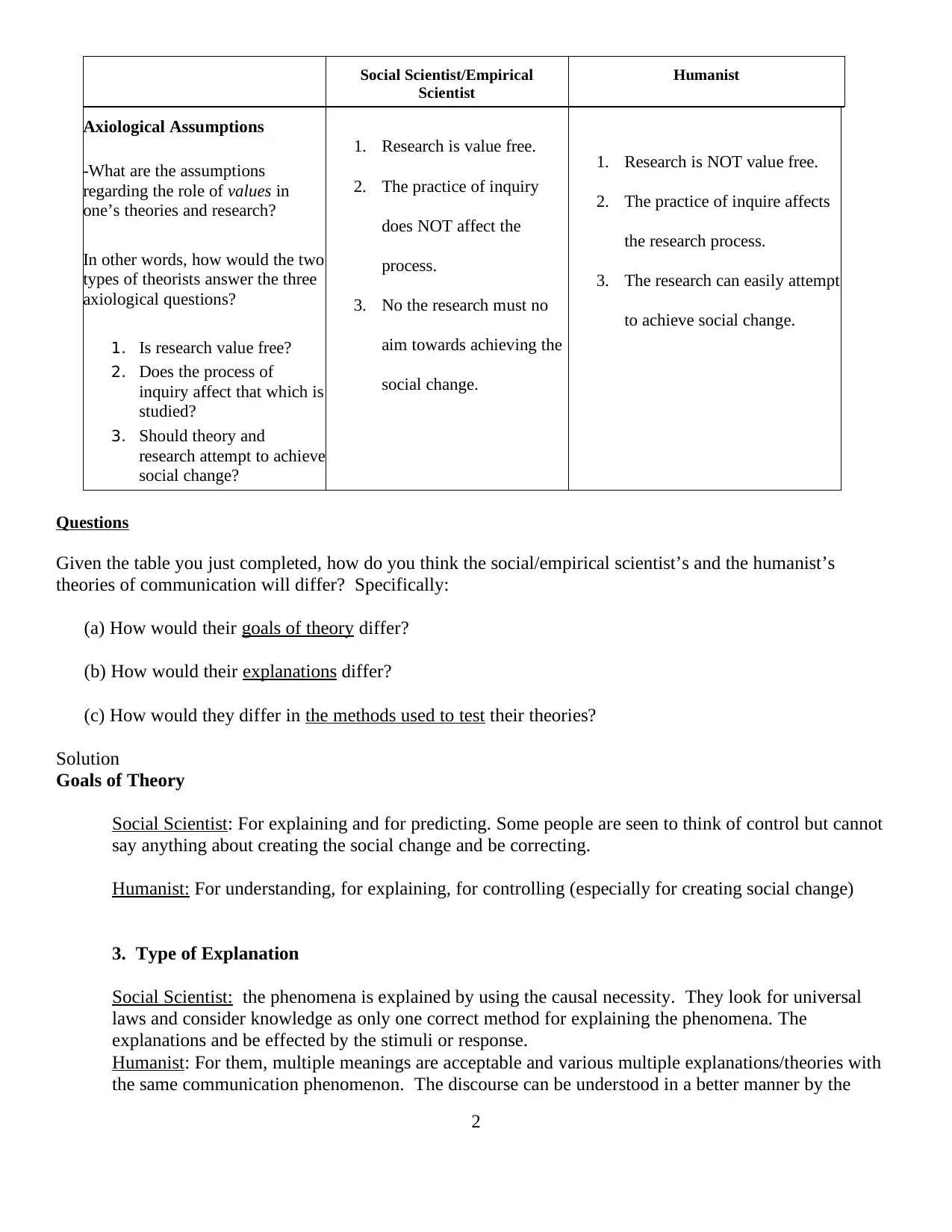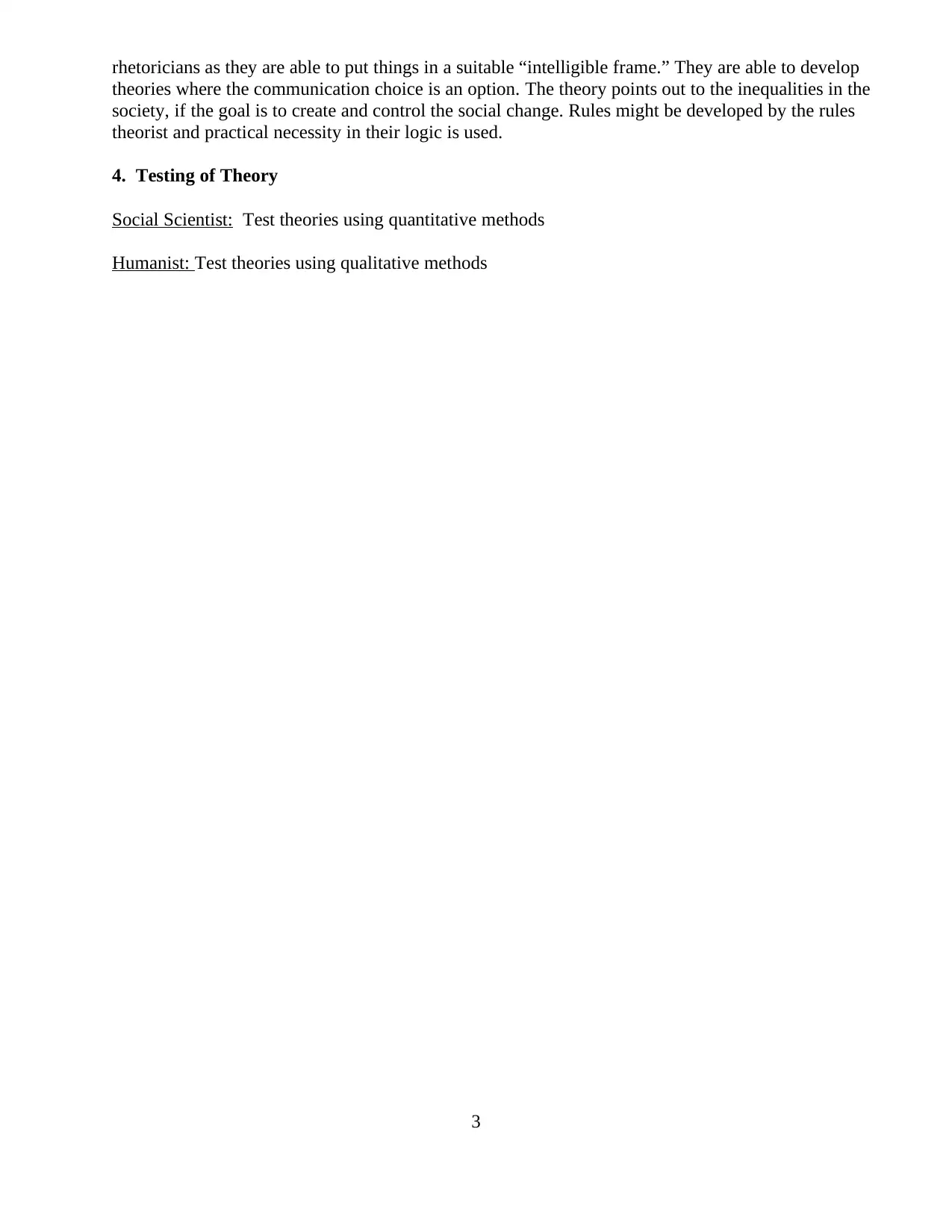Writing Assignment 1: Metatheory: Social Science vs Humanism
VerifiedAdded on 2019/09/25
|3
|1050
|262
Homework Assignment
AI Summary
This assignment analyzes the metatheoretical differences between social scientific and humanistic approaches to communication. The student completed a table comparing ontological, epistemological, and axiological assumptions of each perspective. The assignment then addresses how the goals of theory, types of explanation, and methods used to test theories differ between the two viewpoints. Social scientists focus on explaining and predicting communication phenomena, using causal necessity and quantitative methods, while humanists aim for understanding and creating social change, embracing multiple meanings and qualitative methods. The student highlights the contrasting perspectives on the role of context, the nature of knowledge, and the influence of values in communication research.
1 out of 3





![[object Object]](/_next/static/media/star-bottom.7253800d.svg)